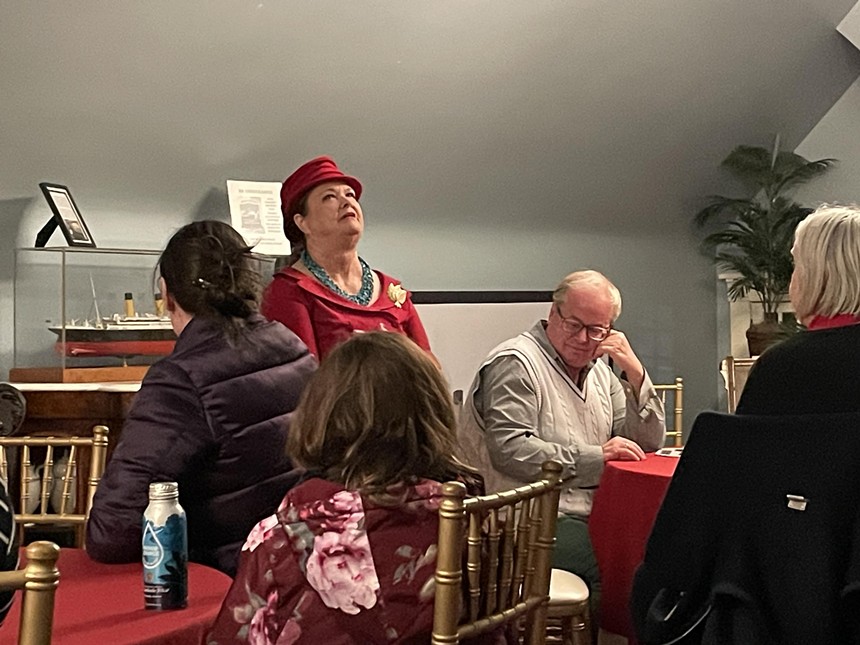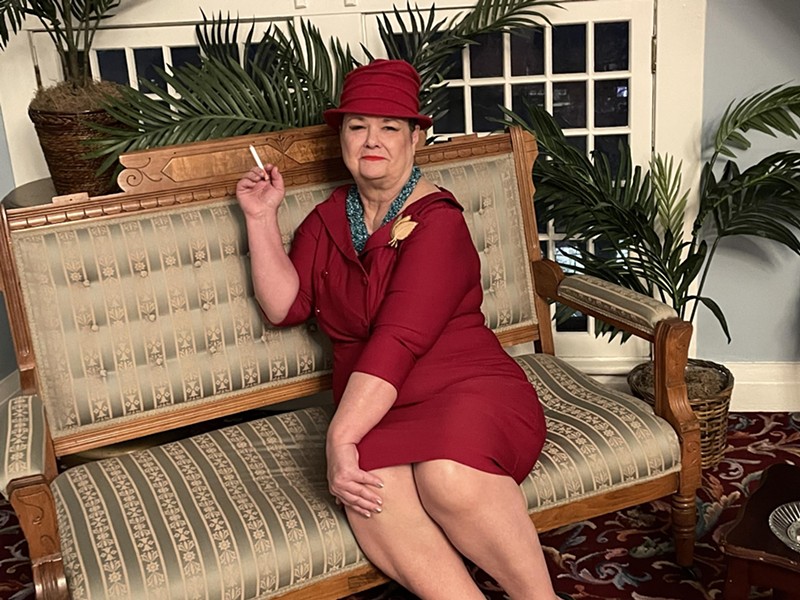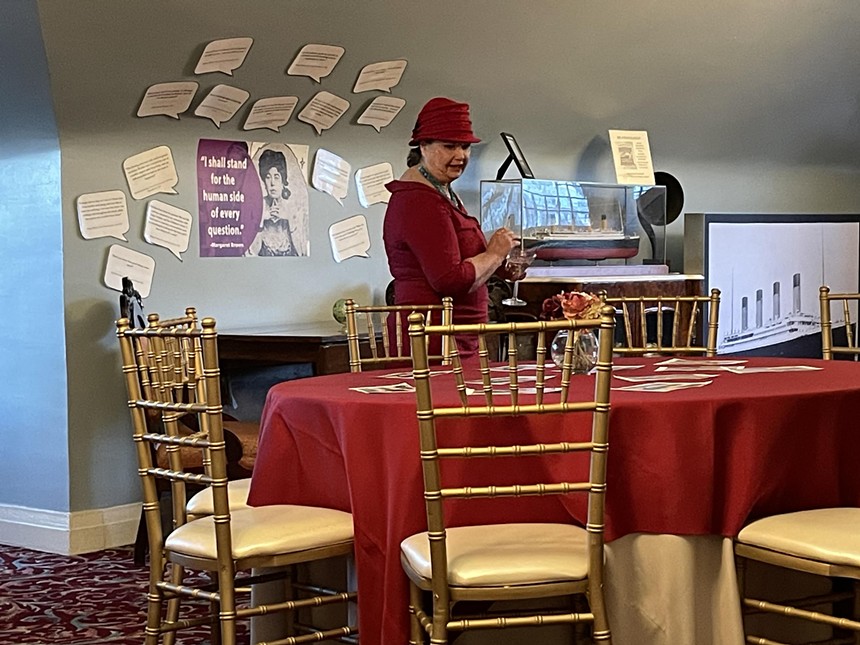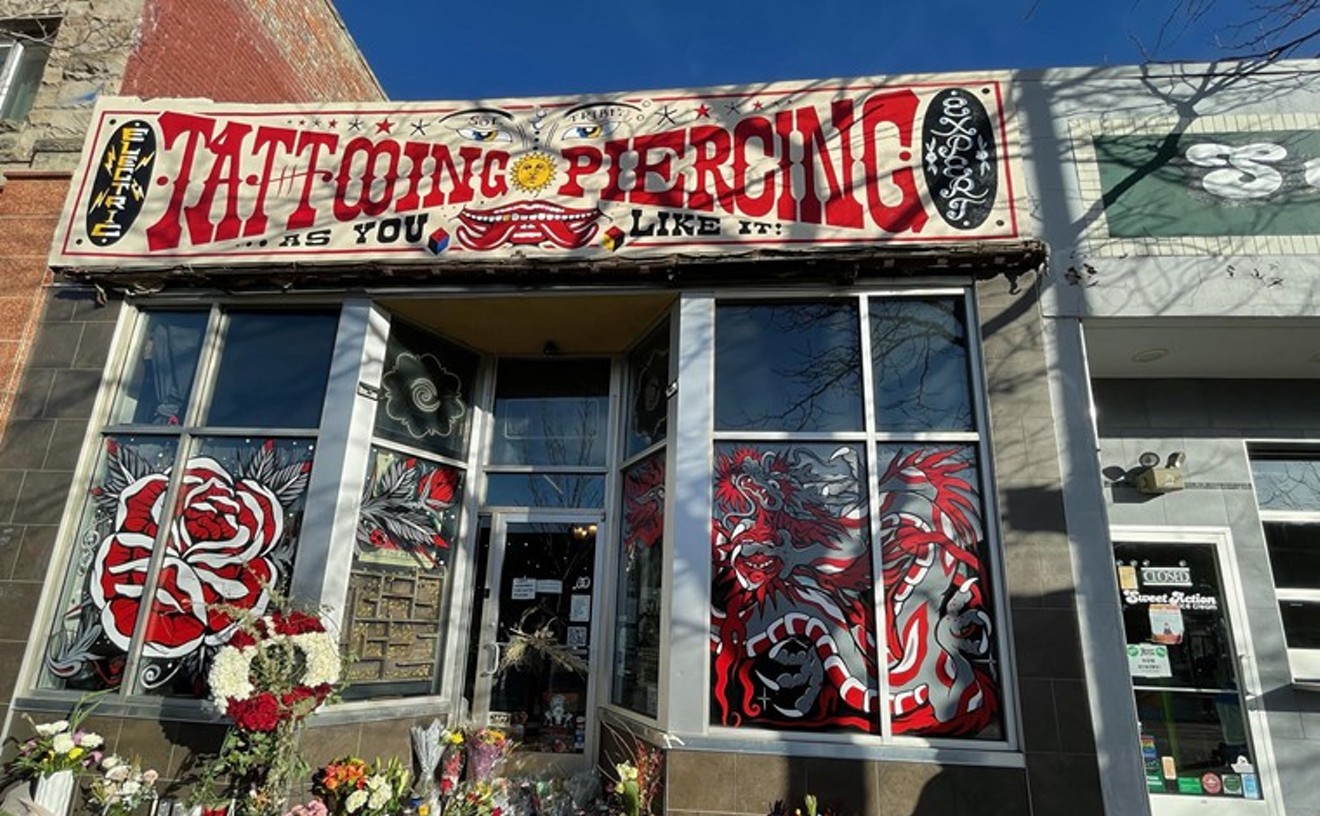"I think of Molly Brown," she says with a smile. "While she's great, I want Helen Bonfils to have her moment in the sun. The Bonfils Girl was my first introduction to her life, but my daughter is a special-needs child, so we always went to the children's hospitals, and I knew about the blood bank she built. I admire her for that, but I really just knew the name. But Helen was really quite the woman." And she should know: She's playing her in the current production.
The Bonfils Girl, written by Colorado playwright Mike Broemmel, tells the story of Helen Bonfils, better known as Miss Helen, who was the first woman publisher of a major newspaper, the Denver Post, as well as an actress, theater producer and philanthropist whose funds went to numerous hospitals, including the Belle Bonfils Memorial Blood Bank and the Denver Center for the Performing Arts. The play features one actress who acts as "Helen from beyond the grave," according to the writer.
"It is pretty much her whole life," Broemmel explains. "It is set after Helen's death in 1972, so she does not change; she is older and giving you insider information about her entire life. You are sitting in a gossip session with Helen."
Born in Peekskill, New York, on November 16, 1889, Helen was the second daughter of Frederick and Belle Bonfils. The family moved to Denver in 1895, where Frederick established the Denver Post. Upon his death in 1933, Helen assumed management of the newspaper, becoming the first woman to lead a major daily newspaper in the United States, though she didn't push that position publicly.
"She really held herself back," says Selena Naumoff, who's directing this production of The Bonfils Girl. "That's one of the themes that we’ve been working on. We’ve talked about how society restrained her, but she also restrained herself. For example, Helen referred to herself as 'secretary treasurer' for decades; it was not until near the end of her life [1966] that she finally took the title of president, despite the fact that she was running the place."
Broemmel’s inspiration for writing The Bonfils Girl, which was first staged in 2016, came from a personal encounter with Helen’s legacy. While sitting at the Holy Ghost Church, he recalls, "I saw a plaque that said, 'Built by Helen Bonfils in honor of her parents.' I knew who she was because I was born in Denver and grew up when she published the Denver Post. But I wondered why she built this beautiful church, so I did a little poking around."
His research revealed fascinating details about Helen's life and personality, such as her pragmatic approach to Catholicism and her complex relationship with her father. She considered the church to be her "deal with God," to make amends for her father's debauchery, including bar fighting, visiting brothels and paying for prostitutes.
"Helen dedicated the church to her parents, but it was really built for her father in the hopes that God would let him go to Purgatory," Broemmel says. "She was a practical, reasonable person; her father might not be able to enter Heaven, but does he have to go to Hell? That spurred me to want to write this play and find out more about her. As I dug into it, I thought she was more of a chip off her mom's block, but I realized she was also quite a bit like her dad. She is, in many ways, a localized icon, but I believe her story warrants a broader discussion because she was a woman who broke the glass ceiling before there was even a discussion about glass ceilings."

Playwright Mike Broemmel describes The Bonfils Girl as "sitting in a gossip session with Helen."
Courtesy of Rev. Selena A. Naumoff, MDiv
Her financial contributions also helped to establish the DCPA, whose legacy continues to shape the city's cultural landscape. But her story contains darker elements, such as when Donald Seawell, a theater producer and president of the Post, and Earl R. Moore, her business advisor, manipulated her finances to further their own goals.
"The money that founded the Denver Center for Performing Arts was Helen Bonfils’s money, and she would not have approved of building the DCPA," Broemmel says. While Helen's second husband, Edward "Tiger" Mike Davis, successfully sued Seawell and Moore on fraud charges, the Colorado Supreme Court ruled in 1975 that the fraud was "intrinsic" (related to the couple's divorce proceedings) rather than "extrinsic" (affecting the court's jurisdiction). This meant that, while the court acknowledged fraud in the Denver Center's construction, it was outside its authority. "The DCPA exists because of fraud, and it's only because of a mistake that her money is where it is today," Broemmel says.
The current revival of The Bonfils Girl will include performances July 11-12 at the Studio Loft of the Ellie Caulkins Opera House in the Denver Performing Arts Complex and August 17 at the Historic Elitch Theatre. Starks stars in the production, which is produced by Act One Productions and Theatrix USA and supported by Denver Arts & Venues' ARPA Cultural Partnership Activation Program.
Staging The Bonfils Girl at both the Denver Performing Arts Complex and Elitch Theatre carries significant weight. The buildings of the complex, some of them funded by the DCPA, is a testament to Helen's long-lasting influence on Denver's cultural scene, so it is only fitting that the story be performed there. Similarly, Elitch Theatre, where Helen once performed but which has been dormant for the past 33 years, holds significant personal and historical value for the production.
"It’s an honor as a director, but I’m a little nervous," Naumoff admits. "Especially since we are the first fully produced play in the Elitch Theatre in decades. I believe we will make her proud, and I hope that the Elitch Theatre continues to operate publicly and host more events in the future."
While the DCPA represents a grand, if tainted, culmination of Helen's philanthropic efforts, Elitch Theatre connects directly to her early roots in Denver's theater community. As the play brings her story to new audiences, it also prompts a broader reflection on her impact, and the team says it hopes this is only the beginning of this run of The Bonfils Girl.
"Helen Bonfils is a little more well known than she was ten years ago, but I hope this broadens people's understanding of who she was and even excites them," Broemmel says. "She was doing things ahead of other women, but not because she wanted to break through the gender barrier; she had a responsibility. It was for her family, community and church. She was sometimes imperfect, but I believe that all interesting people are."
The Bonfils Girl, Thursday, July 11, and Friday, July 12, at the Studio Loft at Ellie Caulkins, Denver Performing Arts Complex, and Saturday, August 17, at the Elitch Theatre, 4550 West 38th Avenue. Learn more at helenbonfils.com.












